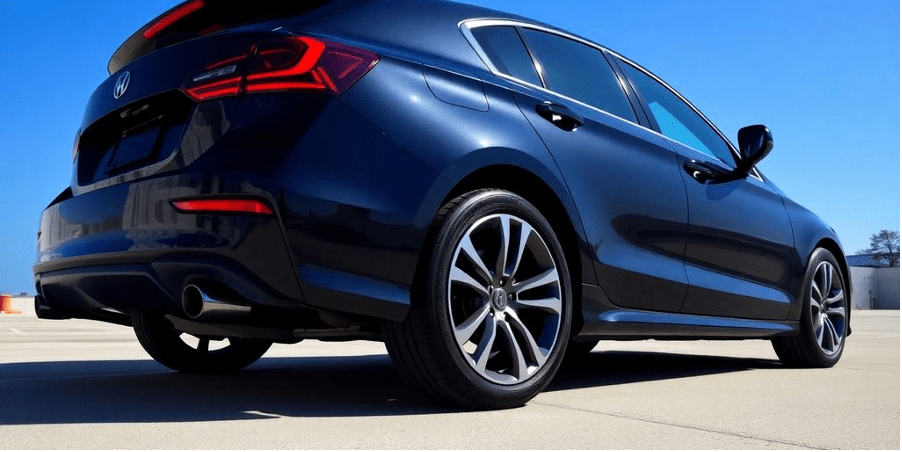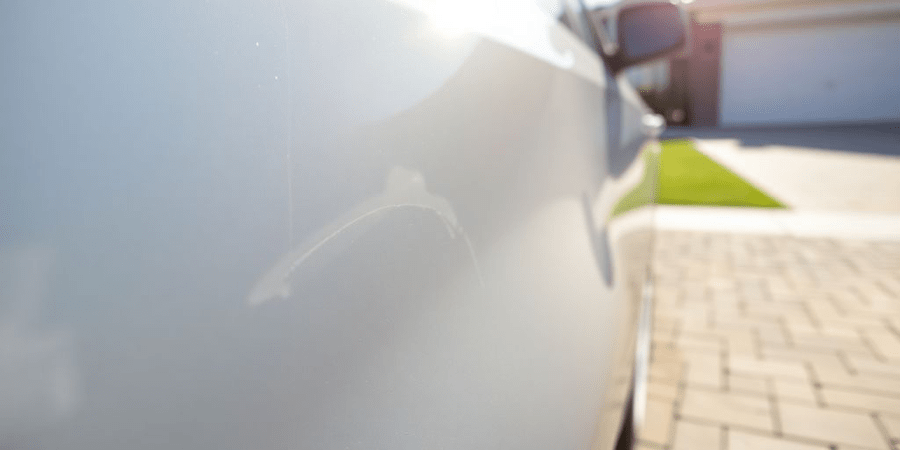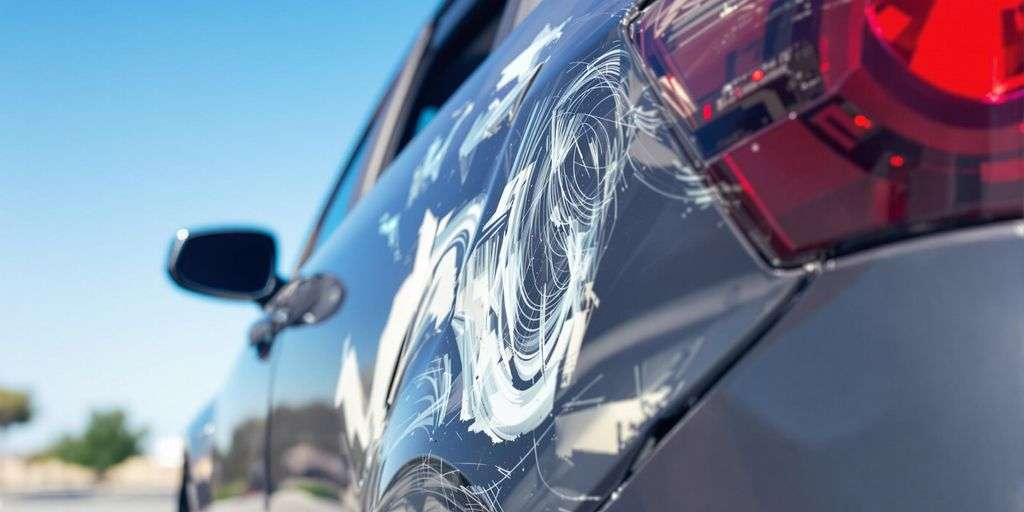Key Takeaways
- Understand that accidents lower your car's value, but you can still sell it effectively.
- Decide if repairing the car before selling is worth it, based on costs and potential resale value.
- Be honest with potential buyers about the car's accident history to build trust.
- Explore different selling options like online listings, specialized dealers, or scrapyards.
- Consider filing a diminished value claim with your insurer to recover some lost value.
Understanding the Impact of an Accident on Car Value
What is Diminished Value?
When your car gets into an accident, even if it's fixed up perfectly, its market value often takes a hit. This drop in value is what's known as diminished value. Basically, it's the gap between what your car was worth before the accident and what it's worth after. Even with top-notch repairs, a car's accident history can show up on reports like CARFAX, making buyers wary and affecting your sale price. Filing a diminished value claim might help you get back some of this lost value when you decide to sell or trade in your car.
Types of Diminished Value
There are three main types of diminished value:
- Inherent Diminished Value: This is the most common type and happens when your car loses value simply because it now has a damage history. Even if repairs are done well, the car's history can still scare off buyers.
- Immediate Diminished Value: This type refers to the loss in value right after an accident, before any repairs are made. While it's often used in court, it's not usually part of insurance claims since repairs are generally covered.
- Repair-Related Diminished Value: This occurs when the repairs themselves are subpar, further reducing the car's value.
How Accidents Affect Car Resale Value
Accidents can really mess with your car's resale value. Even a minor fender-bender can make potential buyers hesitant. Here's how it typically plays out:
- Buyers' Perception: Many buyers worry about hidden issues or future problems, even if the car looks fine now.
- Market Stigma: Cars with accident histories are often seen as less reliable, leading to lower offers.
- Insurance Complications: If there's an unsettled diminished value claim, it can complicate the sale process.
“Selling a car that’s been in an accident can be tricky. Even if everything seems fixed, the stigma of an accident can linger, affecting both buyer interest and the final sale price.”
Understanding these impacts can help you better prepare when it comes time to sell your car after an accident.
Preparing Your Car for Sale After an Accident

Decide Whether to Repair the Vehicle
First off, you gotta figure out if fixing your car is worth it. If the damage is minor, repairing it could make it more appealing to buyers. But if the repairs are costly, you might not get that money back in the sale. Consider the repair costs against the potential sale price. Sometimes, selling “as-is” might be the better option, especially if the car still runs fine.
Document Any Damage to the Vehicle
Transparency is key. Keep a record of all damage your car has suffered. Get a vehicle history report and make sure you have a detailed list of any accidents. Buyers appreciate honesty, and it saves you from potential legal headaches later. Walk potential buyers through the damage and repairs, showing them you're upfront and trustworthy.
Gather Repair and Maintenance Records
Having a stack of repair and maintenance records can really boost buyer confidence. It shows you've taken care of the car, even after an accident. Make sure you have receipts and documentation for any work done. This can help you negotiate a better price if you believe your car's value exceeds the insurance company's assessment. Buyers like knowing the car's history, and it can help justify your asking price.
Exploring Selling Options for a Damaged Car
Listing the Car Online
Selling a car that's been in an accident can be tricky, but listing it online is a good starting point. You get a chance to see what potential buyers might offer. This approach gives you a broad idea of the market value for your damaged vehicle. If the offers are too low, don't worry. You can explore other options.
Selling to Dealers Specializing in Damaged Cars
If the online route doesn't pan out, consider reaching out to dealers who specialize in buying damaged cars. These dealers often look for vehicles they can repair and resell. They might offer you a fair price, considering the car's condition. This option is worth exploring if you're not getting the offers you want online.
Considering a Sale to a Scrapyard
When your car is beyond repair or just not attracting buyers, selling it to a scrapyard could be your next move. Scrapyards pay based on the vehicle's scrap value and any parts that might still be useful. It might not be the most lucrative option, but it does get the car off your hands.
Selling a damaged car requires patience and a willingness to explore different avenues. Each option has its pros and cons, but with the right approach, you can find a buyer who sees the value in your vehicle, even if it has a bit of history.
Navigating Insurance and Claims
Understanding Diminished Value Claims
When your car gets into an accident, its value usually takes a hit, even if you fix it up perfectly. This drop in value is called diminished value. Basically, it's the difference between what your car was worth before the accident and what it's worth after repairs.
There are three types of diminished value:
- Immediate Diminished Value: This is the reduction in market value right after an accident, before any repairs.
- Inherent Diminished Value: This is the most common type, reflecting the loss in value simply because the car now has an accident history.
- Repair-Related Diminished Value: This occurs if the repairs were not done well, leaving the car with noticeable issues.
Understanding these can help you make a diminished value claim with your insurance company, aiming to recoup some of that lost value.
Filing a Diminished Value Claim
Getting the ball rolling on a diminished value claim can be a bit tricky, but it's definitely worth the effort. Here's a quick guide to help you out:
- Collect Evidence: Gather all the necessary documents, like the police report, repair receipts, and photos of the damage.
- Contact Your Insurer: Reach out to your insurance company to start the claim process. Be prepared to provide all the evidence you've collected.
- Get an Appraisal: Consider hiring a professional appraiser to assess your car's diminished value. This can strengthen your case.
- Negotiate: Be ready to negotiate with your insurer, as they might initially offer less than what you expect.
Impact of Unsettled Claims on Car Sale
Selling your car with an open insurance claim isn't impossible, but it can complicate things. When a claim is still pending, potential buyers might hesitate, unsure about the final repair quality or the car's actual condition. It's usually best to settle any claims before listing your car for sale.
Unresolved claims can leave a cloud of uncertainty over your car sale, potentially lowering offers or scaring off buyers altogether.
If you must sell while a claim is open, be transparent with buyers about the situation. Explain what's being done and provide any available documentation. This honesty can help maintain trust and potentially secure a better deal.
Effective Communication with Potential Buyers

Being Honest About Accident History
Selling a car that's been in an accident can be tricky, but honesty is key. When potential buyers ask about the car's history, be upfront. Whether it was a minor scrape or a more serious collision, you need to let them know. Most buyers appreciate transparency and are more likely to trust you if you're straightforward from the start. Think of it this way: 61% of buyers might still consider a car with past damage if they feel the seller is trustworthy.
Providing Vehicle History Reports
A vehicle history report is like a resume for your car. It tells buyers about past accidents, ownership changes, and any recalls. This report is crucial because it gives buyers peace of mind, knowing they aren't stepping into a risky purchase. Consider providing a CARFAX report or something similar before they even ask. This proactive step shows you're serious about the sale and have nothing to hide.
Encouraging Pre-Purchase Inspections
Encourage buyers to get a pre-purchase inspection. This allows them to see the car's current condition and verify any repairs made after the accident. It shows you're confident in the car's quality and aren't trying to hide anything. Plus, it gives them a chance to ask questions and address any concerns. Buyers will appreciate your openness and might feel more inclined to close the deal.
Selling a car with a history of accidents isn't impossible. By being transparent and providing the right documents, you can turn a potential deal-breaker into a selling point. Buyers are more likely to trust you and consider your car if they feel informed and assured about their purchase.
Remember, when you're selling a car with accident damage, it's essential to gather all relevant documentation, including maintenance records, repair receipts, and accident reports, to instill confidence in potential buyers. Learn more about gathering documentation.
Maximizing the Sale Price of a Damaged Car
Setting a Competitive Price
Setting a price for a car that's been in an accident can feel like walking a tightrope. You don’t want to scare off potential buyers with a price that's too high, but you also don't want to undersell yourself. Research similar cars in your area that have a similar accident history. Use resources like Kelley Blue Book to get an idea of the market value. Then, adjust your price based on the severity of the damage and the quality of repairs. A well-priced car will attract more buyers and potentially spark a bidding war.
Highlighting Positive Aspects of the Car
Even if your car has been in an accident, it still has its perks. Maybe it’s got a killer sound system, low mileage, or a fresh set of tires. Highlight these features in your listing. Create a list of all the positives that make your car stand out. Buyers love to know they’re getting a good deal, so make sure they see the value in what you’re offering.
- Low mileage
- Recent upgrades (e.g., new tires, sound system)
- Regular maintenance records
Negotiating with Confidence
Negotiation is an art, especially when selling a car with a history. Be prepared for buyers to haggle, but stand firm on your price if you believe it's fair. Be honest about the accident history, but also confident in the car's current condition and the repairs made. Confidence can be contagious, and if you believe in the car's value, your buyer might too. Remember, you’re not just selling a car; you’re selling its potential and future reliability.
“The key to negotiating a fair price is to know your bottom line and stick to it. Buyers will respect your honesty and firmness, which can lead to a successful sale.”
Conclusion
Selling a car that's been in an accident can feel like a tough gig, but it's totally doable if you play your cards right. First off, be upfront about the car's history. Honesty really is the best policy here, and most buyers appreciate knowing what they're getting into. You might not get top dollar, but you can still get a fair price by being transparent. Consider getting a professional appraisal to understand the car's current value and explore options like diminished value claims if applicable. Whether you decide to fix it up or sell it as-is, just make sure you're clear about the condition. At the end of the day, it's all about finding the right buyer who sees the potential in your car, accident history and all. Good luck out there!
Frequently Asked Questions
What does ‘diminished value' mean for a car?
Diminished value is the drop in a car's worth after it’s been in an accident, even if it’s fixed. Buyers often pay less for a car with an accident history.
Can I sell my car if it still has damage from an accident?
Yes, you can sell a car with damage. However, you might get less money for it, especially if the damage is not repaired.
How can I make my damaged car more appealing to buyers?
Be honest about its accident history, provide repair records and a vehicle history report, and encourage buyers to get a pre-purchase inspection.
What are my options for selling a car that’s been in an accident?
You can list it online, sell it to dealers who buy damaged cars, or consider selling it to a scrapyard.
Should I fix my car before selling it?
Fixing your car can help you get a better price, but it depends on the repair cost. If repairs are too expensive, it might not be worth it.
Can I sell my car while waiting for an insurance claim to settle?
You can, but it might complicate the claim process. It’s usually better to wait until the claim is settled.



